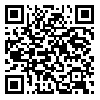Volume 10, Issue 20 (12-2022)
نظریه و عمل 2022, 10(20): 241-282 |
Back to browse issues page
Research code: 0
Download citation:
BibTeX | RIS | EndNote | Medlars | ProCite | Reference Manager | RefWorks
Send citation to:



BibTeX | RIS | EndNote | Medlars | ProCite | Reference Manager | RefWorks
Send citation to:
Sharafi S, Momeni Mahmouei H, Akbari A, Fallah Mehneh T. (2022). Analyzing and explaining the dimensions and components of the layered curriculum in line with the student-centered approach. نظریه و عمل. 10(20), 241-282.
URL: http://cstp.khu.ac.ir/article-1-3436-en.html
URL: http://cstp.khu.ac.ir/article-1-3436-en.html
Abstract: (4151 Views)
To create a learner-centered learning environment, teacher and students must add new dimensions to their traditional roles. This research was conducted qualitatively and with thematic analysis approach. To achieve the set goal, a structured interview was conducted with curriculum experts. The samples were selected in a purposeful manner based on specific criteria. Data analysis started from the first interview with MaxQDA software and coding was done after each interview. The data were analyzed by inductive thematic analysis. Finally, the findings from the interviews were compiled in the categories of basic, organizing and inclusive themes. Lincoln and Guba’s four criteria were used to increase scientific accuracy. The results of the research showed that the qualitative model of Layered Curriculum after validation with Fuzzy Delphi method has the dimensions of Design, Goal, Content, Method, Student, Learning Environment, Learning Tasks, Teacher and Evaluation.
Type of Study: Research |
Received: 2022/08/6 | Revised: 2022/12/18 | Accepted: 2022/10/9 | Published: 2022/12/1
Received: 2022/08/6 | Revised: 2022/12/18 | Accepted: 2022/10/9 | Published: 2022/12/1
| Rights and permissions | |
 |
This work is licensed under a Creative Commons Attribution-NonCommercial 4.0 International License. |





